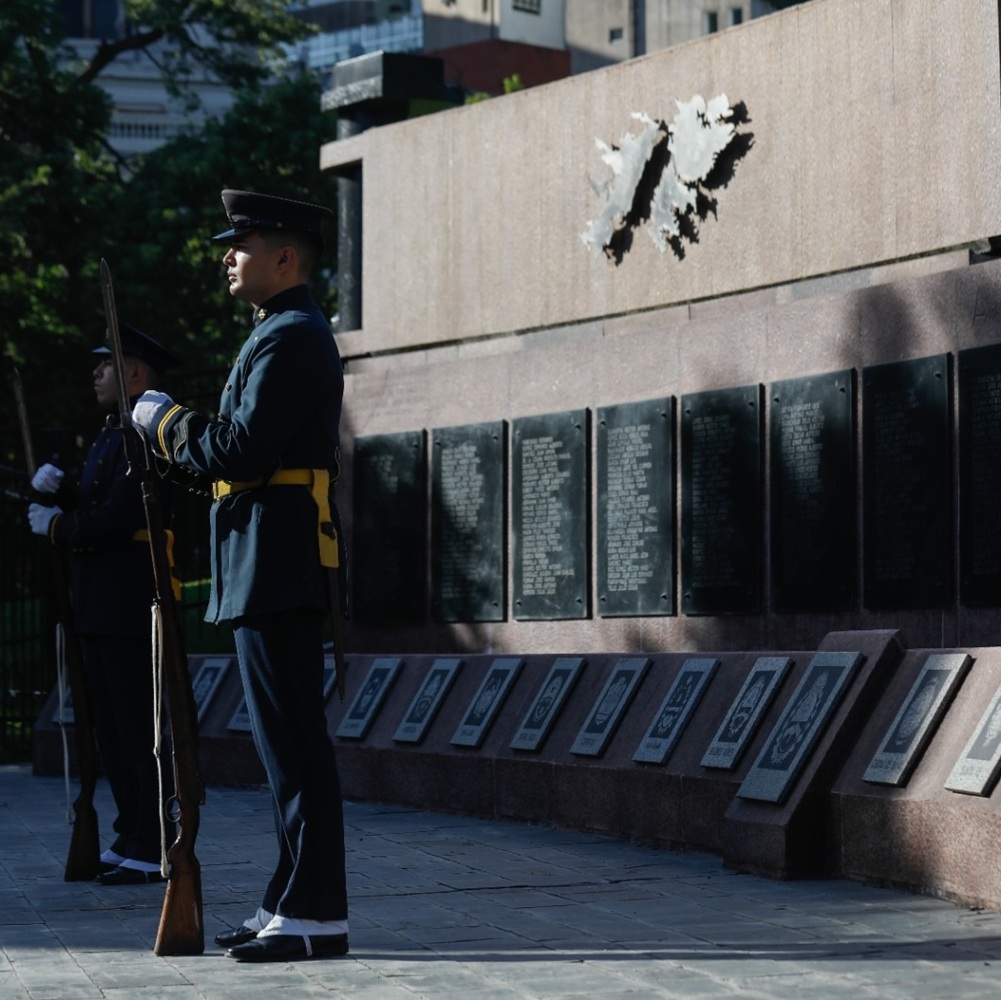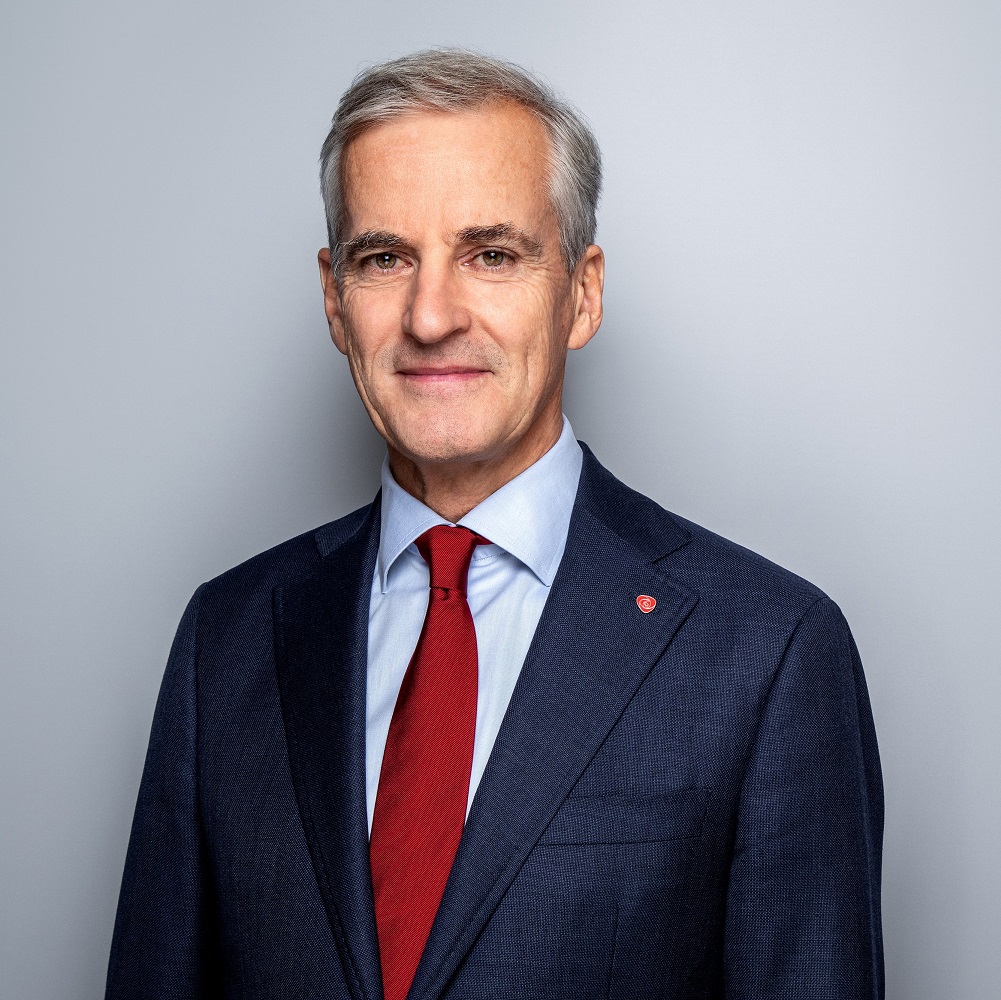
President Javier Milei’s Speech at the Tribute to the Heroes of the Malvinas
by Javier Milei
한국어로 읽기 Leer en español In Deutsch lesen Gap اقرأ بالعربية Lire en français Читать на русском Good morning, everyone. Forty-three years after the beginning of the Malvinas War, we gather once again as a nation to commemorate our veterans and those who fell in combat, under the proud gaze of their families, to whom I also extend this tribute. Today, we remember those Heroes who gave their lives for the Homeland, who are part of the pantheon of those who forged our history through their sacrifice. Today, we honor them by reaffirming, with genuine determination, Argentina’s claim to sovereignty over the Malvinas Islands, South Georgia, and South Sandwich Islands, as well as the surrounding maritime areas. Unfortunately, in recent decades, our sovereign claim over the islands has been directly or indirectly harmed by the economic and diplomatic decisions of the political caste. No one can take seriously the claim of a nation whose leadership is known worldwide for its corruption and incompetence, and for dragging Argentina into the arms of the world’s scum. A country that systematically impoverishes its land and sides with dictators and petty tyrants enters any diplomatic negotiation from a position of weakness. And if we add the disarmament and deliberate demonization of the Armed Forces, we had the perfect recipe for the Malvinas Islands to remain forever in foreign hands. The first step we must take, then, is to rise as a country in every sense — both materially and spiritually — and to reclaim the place in the international community that we should never have lost. And there is no other way to achieve this than by applying the ideas of liberty, both within our borders and beyond, by opening ourselves to international trade and adopting a foreign policy aligned with the free nations of the world. This is the first government in a long time that understands that a sovereign country must, first and foremost, be a prosperous country. Only then can we take the second step: to dignify our Armed Forces through the necessary investments that only a prosperous nation can afford. Growth is in vain if public spending is not reorganized, strengthening those areas in which the State should be involved and eliminating those that are unnecessary, because when the State assumes responsibilities that do not belong to it, it is always to the detriment of essential functions. Despite the political caste’s decades-long effort to convince us otherwise, Argentina needs a strong Armed Forces. They are essential to defend our vast territory from potential threats in a global context of growing uncertainty. They are also indispensable in any diplomatic discussion. In this regard, history is unforgiving: a strong country is a respected country. This does not mean that might makes right, but foreign policy cannot be conducted from a naïve and childish idealism either. For us, the Armed Forces are a source of pride. The time when they were undervalued has come to an end. Proof of this is that, on July 9 of last year, for the first time, more than 2,000 of our veterans led the military parade during the Independence Day celebrations, before a proud and grateful crowd for their actions in defense of the Homeland. That is also why we have just enacted a decree instructing the Ministry of Defense to grant the rank of Reserve Second Lieutenant to those Reserve Officer Candidate Soldiers who are veterans of the Malvinas War. This rank would have been granted to them upon completion of their military service, but it was left unfulfilled as they were discharged directly after the war ended. This is, simply put, about settling a debt with these Heroes — a debt that has been ignored for 43 years by successive governments and that we now intend to correct once and for all. Without all the above, any notion of sovereignty loses its meaning. Sovereignty is not about the State owning many companies, nor about financing the film industry, or second-rate concerts, or similar things. Believing that more State means more sovereignty is an Orwellian concept under which politics has historically tried to conceal its dirty dealings — resulting in a poor people enslaved by an omnipresent State. We, on the other hand, have come to reclaim that word, which until recently had been hijacked, and to restore the meaning it truly deserves. A sovereign people is a flourishing, vigorous, respectable people — and above all, a people proud of its Armed Forces. A nation like the one built by the generation of the 1880s, which, after a century of humiliation, we are rebuilding. As I’ve said on other occasions, we are not here to apply extravagant formulas, but rather to return to those strategies that once made us successful. And when it comes to sovereignty over the Malvinas, we have always made it clear that the most important vote is the one cast with feet. We hope that one day the people of the Malvinas will choose to vote with their feet — for us. That is why we seek to make Argentina such a powerful nation that they will prefer to be Argentine, and persuasion or deterrence won’t even be necessary to achieve it. That is why we have embarked on the path of liberation we are now walking — so that Argentina becomes the freest country in the world, once again has the highest GDP per capita on the planet, and inspires people around the world to dream of the Argentine dream. That is what this government understands by sovereignty. It is the standard by which we measure ourselves, and we will not settle for anything less. To conclude, on this second April 2nd that I experience as President, I want to once again reaffirm our unwavering claim over the Malvinas Islands, reinforcing our commitment to exhaust all diplomatic means within our reach so that they may return to Argentine hands. Finally, to the veterans, to their families, and to all those who wear the uniform in defense of the Homeland, I extend my eternal gratitude on behalf of all Argentines. May God bless the Argentine Republic, may the forces of heaven be with us! Long live freedom, damn it! Thank you very much! Long live the Homeland!









